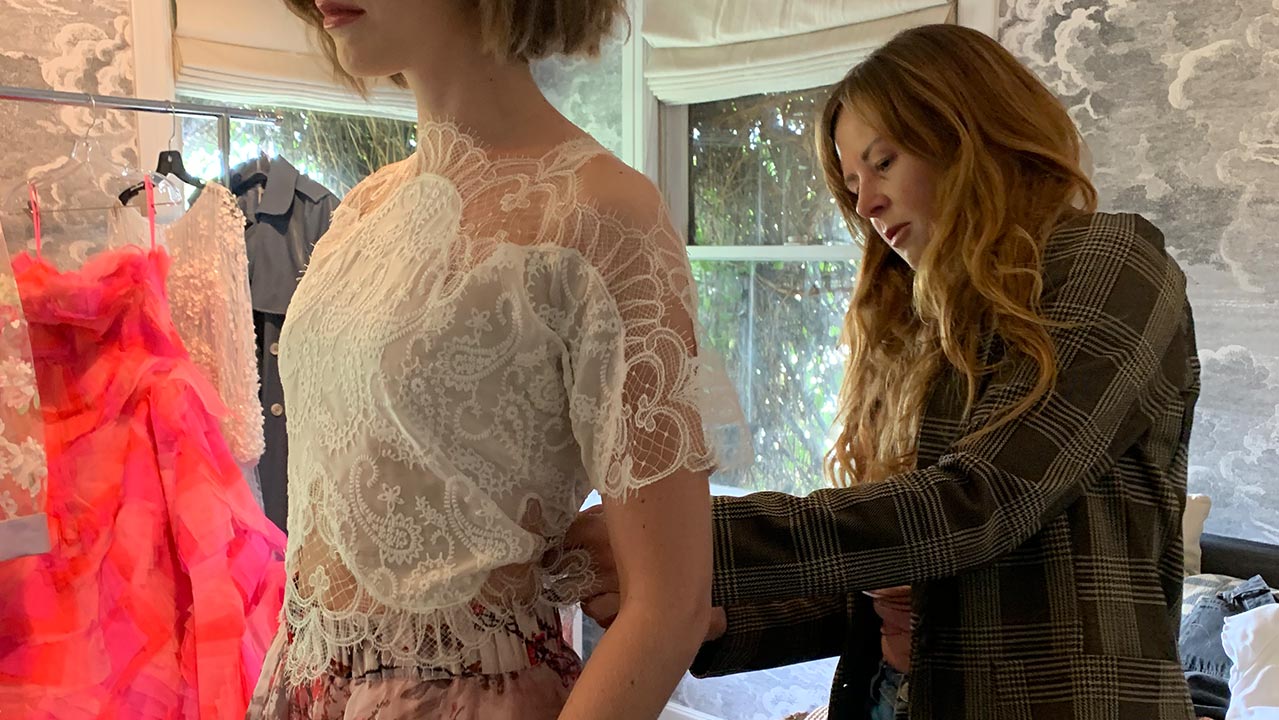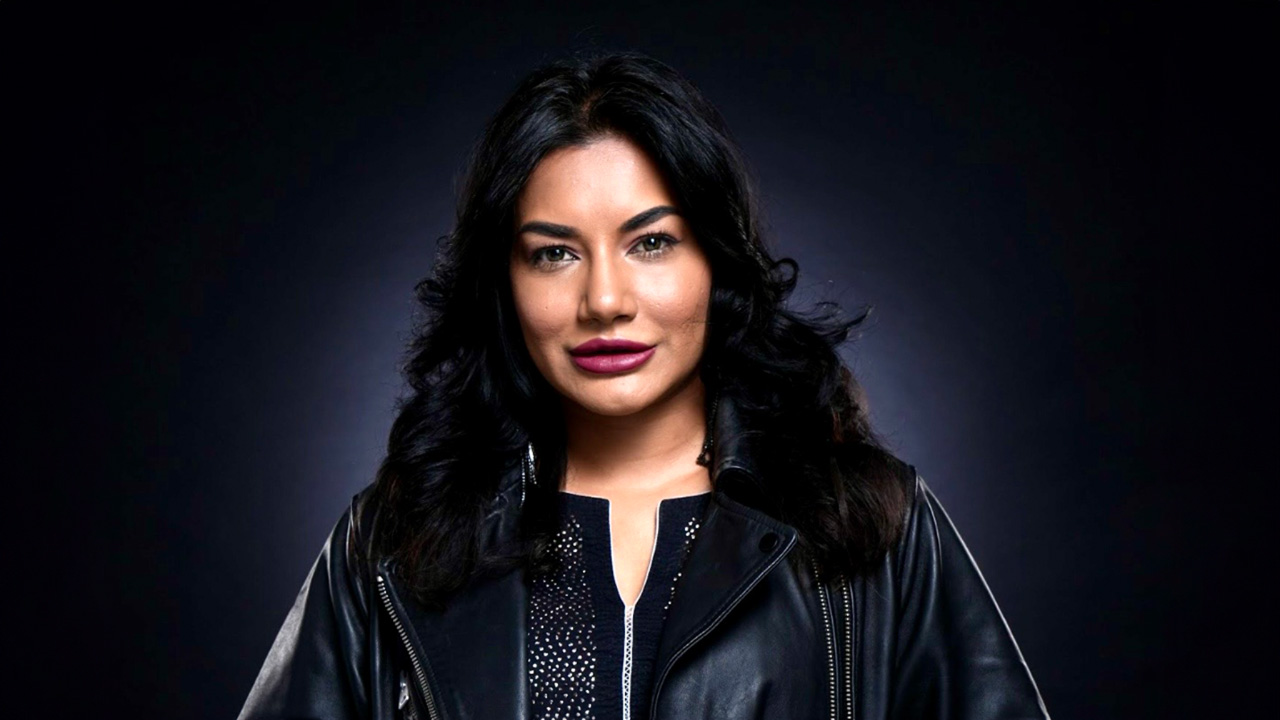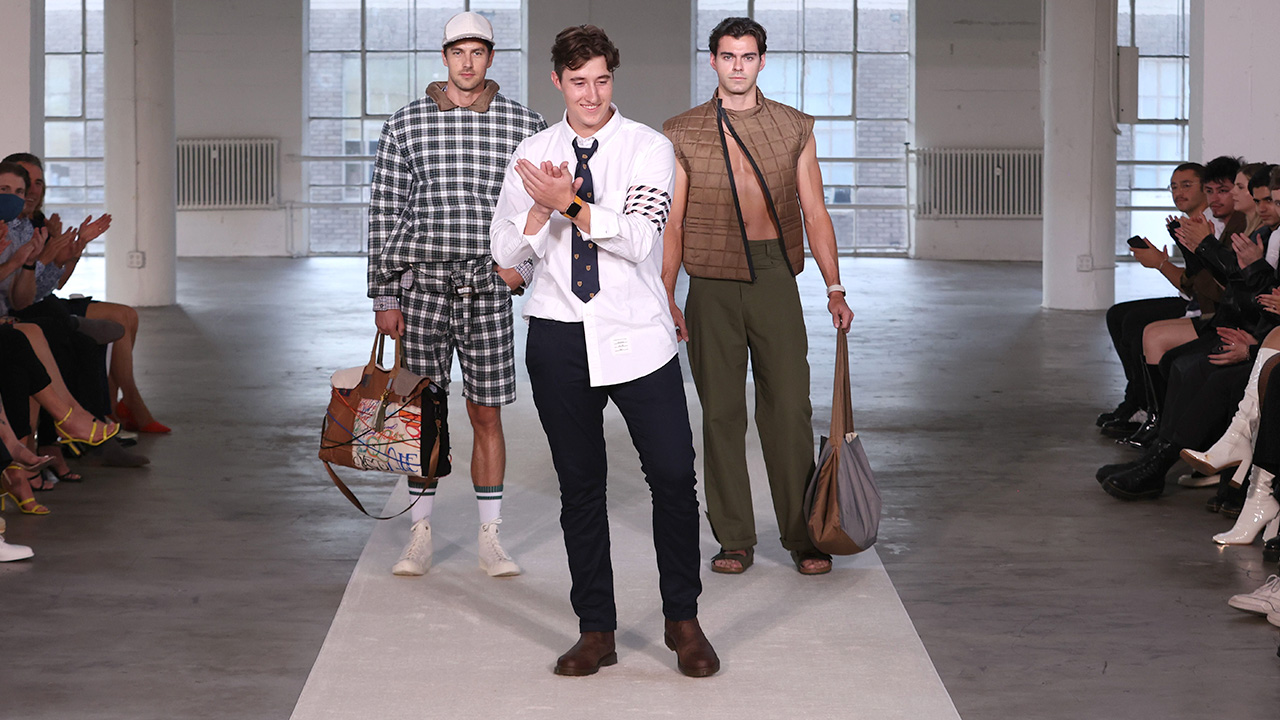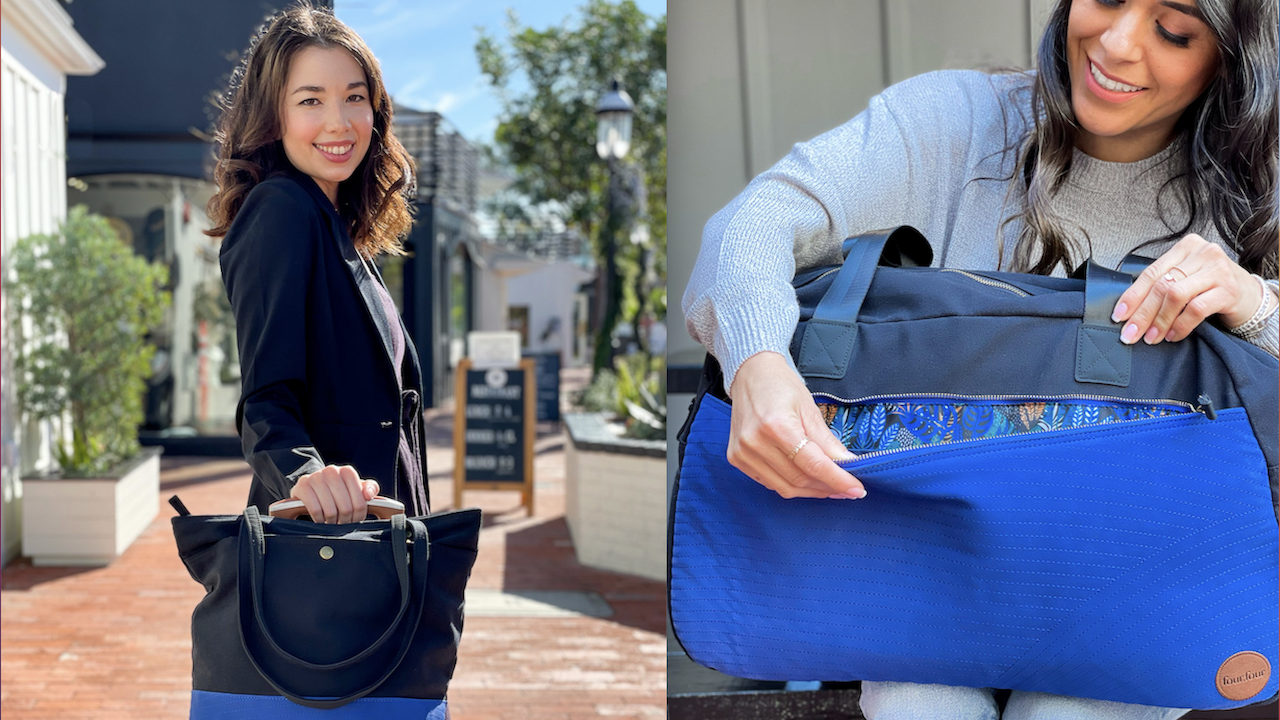
Alumni
Grad Designing Travel Products That Give Back
Erika Logan Batchelor (pictured below, at left) was born in Las Vegas, Nevada and raised all over the world, including Japan, Spain, and New York, since her dad was in the military. After graduating from Torrance High School in Southern California, Erika attended the University of Maryland before studying Fashion Design at the Los Angeles campus. After graduating in 2004, she went on to design costumes for film, TV, and commercials, and worked for the Walt Disney Company, TravisMathew, and O’Neill prior to striking out on her own as an entrepreneur. As the co-founder and ceo of Four.Four Co., a line of travel bags and accessories that benefits children in the foster care system, Erika is creating products with a purpose. We recently chatted with the Huntington Beach-based graduate to learn more about her career in the industry, how she came up with the idea for Four.Four, and sustainability.
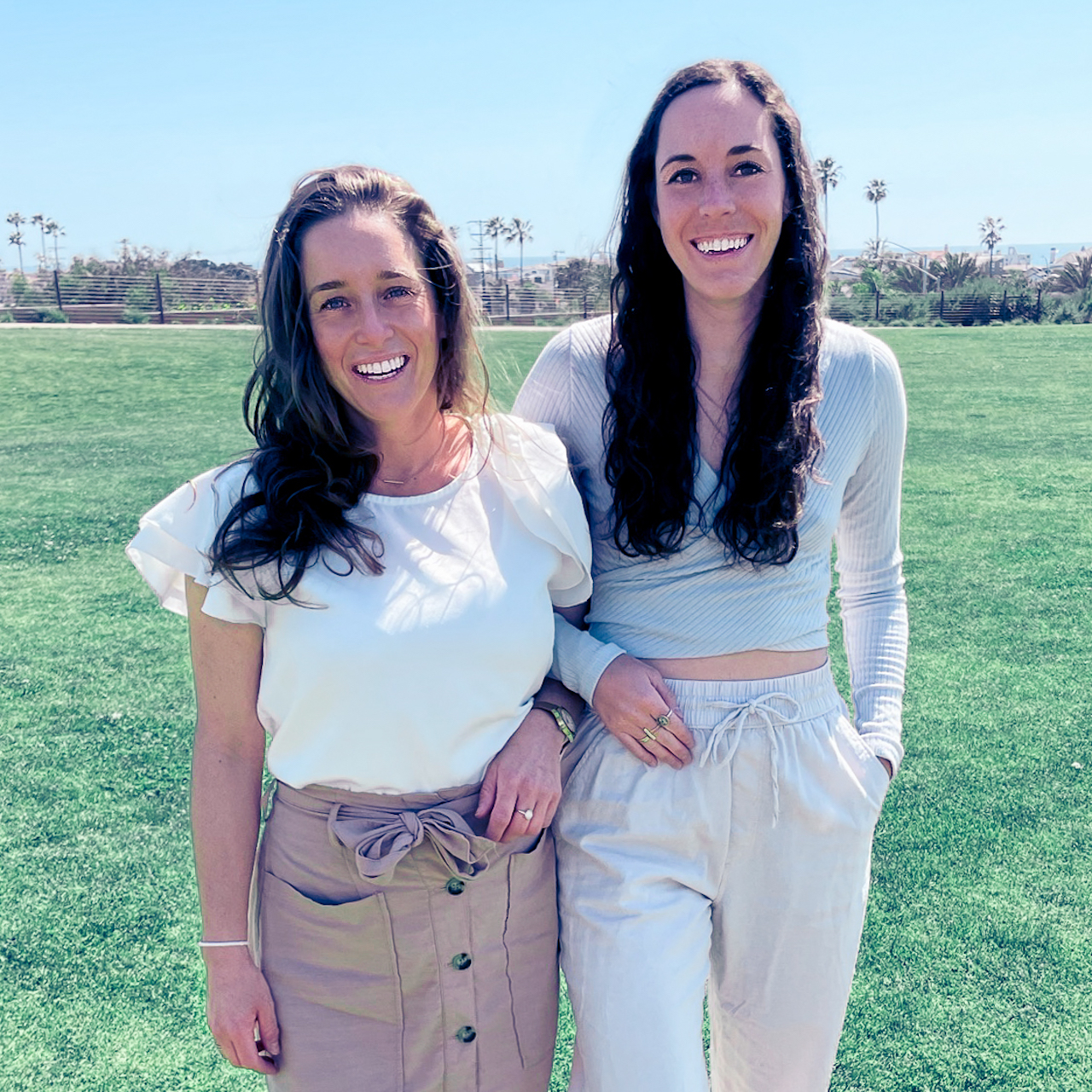
What were some of the most valuable lessons you learned at FIDM? The most valuable lesson I learned at FIDM was you get out of it what you put into it. I wasn’t in it for the grades or the recognition; I was there to learn and set myself up for success. I knew the time would go by fast so I didn’t waste even a minute and paid attention to everything.
What have you been up to since graduating from FIDM? Since leaving FIDM I have lived a full life. I packed up and moved to New York City and designed costumes for movies, TV, and commercials. I became a mom, traveled the world, dressed celebrities, attended award shows, and helped a women’s brand start-up where I was given the opportunity to travel to China and visit factories. I did fabric development for the Walt Disney Company, where I also was blessed with the opportunity to start their tech department in character costumes and to help create the magical costumes for all the Disney walk around characters for the theme parks worldwide.
After Disney, I took a design position with TravisMathew and was quickly promoted to become product manager. Over my six year stint, we went from a small company to a multi-million dollar corporation. The hours were long and hard but I always paid attention and learned whatever anyone was willing to teach me. I was blessed with the opportunity to travel to the factories with my company, this time to Peru, where I continued to expand my knowledge of fabric development, construction, manufacturing, and development. After leaving TravisMathew in 2019 to pursue more growth, I was hired as the men’s sportswear designer for O’Neill. For several years I had been slowly working on Four.Four co. on the side and when Covid hit and I made the second round of layoffs at O'Neill, I was blessed with an opportunity to devote myself full time to making my passion project a full-time career.
How did you come up with the idea for Four.Four? It was Christmas of 2018 where I had my final concept for my company laid out for my family to see in its entirety during the holiday gathering. Although the thought of wanting my own company had always been in the back of my head my entire life like a constant nagging. I came up with the idea for my company because of my mom. She is a social worker for Orange County Mental Health and works with the homeless population getting them housing and back on their feet. In my personal life I would clean out my closet and bring her all my old clothes so she could donate them to her clients. One day she said, “It’s great you bring me all your clothes, but they are in need of bags because they don’t have any way to carry the clothes.”
That was my lightbulb moment when I realized, I can fix this problem, and I know how. I knew starting my own company had to be authentic to who I was, and I wanted to give back wherever and whenever I could because my true passion in life was to be helpful. One of the hardest parts of this whole process was coming up with a name. I liked the idea of a statistic, something that made people ask, what or why. I found that 4.4 children on a daily basis enter the foster care system in the U.S. and usually end up carrying their belongings from place to place in trash bags, so 4.4 percent of all proceeds go towards our Give.One.Back. mission which helps donate bags to children in foster care. Laura Sloneker is my co-founder/partner who also happens to be one of my closest friends.
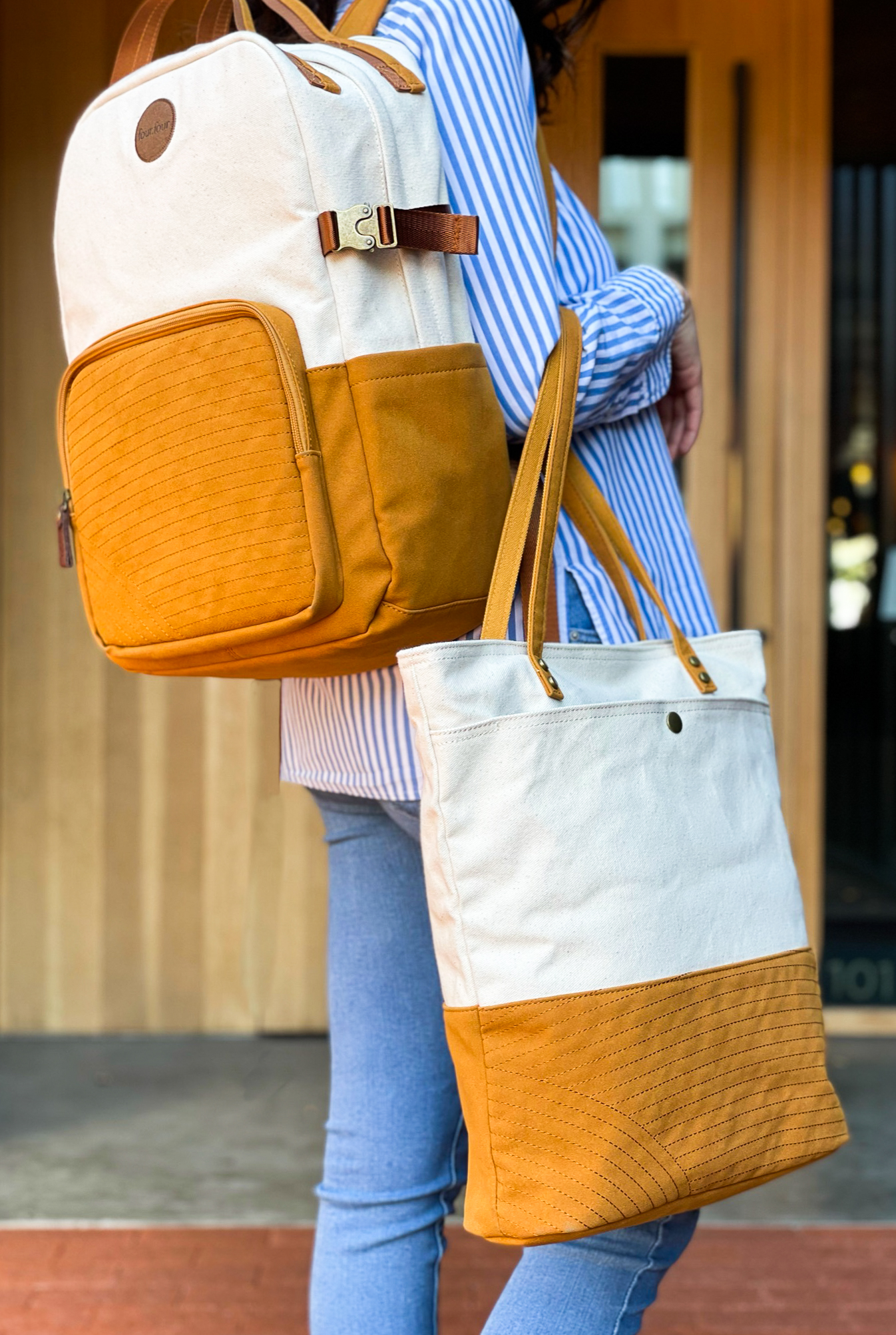
Tell us more about your line of travel bags: We were determined to make our product with purpose. With my past companies we would do a ton of travel international and domestic. Going straight from the airport to a meeting became the norm, but the bags I would use were either functional, but looked generic and boring or cute and stylish but not functional. I wanted a product that was a fun, functional, and looked great. Our line is meant to be multifunctional and you’ll find yourself thinking, “How did I ever live without this?” We have duffels, totes, backpacks, and toiletry bags. Our products combine sharp designs with practical details to help you stay current and organized on all your journeys.
Did you have a personal connection to children in the foster care system prior to founding Four.Four? In my free time I volunteer with CASA, which stands for Court Appointed Special Advocate. It compares to the Big Brothers Big Sisters program, but for children specifically in the foster care system. It’s an amazing program where you are sworn in by the court and help advocate for a child as they go through the system. On average, during the course of a child’s time in the foster system, they may have three to four lawyers, two to three social workers, four to five foster homes, three to four schools, but there should be one CASA. It’s not just about making sure the child has what they need and their voice is heard by the courts, but helping them prepare for their future, and showing the, they have a future.
Where do you see the future of the charitable aspect of your business headed? Our short-term charitable contribution is 4.4 percent of our profit goes back to getting a bag in the hands of a child in foster care, giving them a way to travel from place to place with dignity. Our long-term charitable goal is to do job training for kids 18 to 26 who are aging out of the foster system. We want to give a hand up, not a hand out. We want them to take these skills and get better paying jobs to support themselves in life. The fact is one in five youth will become homeless by the age of 18. For former foster youth, by the age of 24, only half will be employed creating a staggering statistic that one in four foster youth will be involved in the justice system within two years of leaving the foster care system.
What are the best and most challenging aspects of entrepreneurship? The best thing about being an entrepreneur is the ability to be authentic to yourself from the start. So many times, I’ve worked for a company and put my heart and soul into something, but missed the “why.” Starting my own company lets me ground myself because we built “why” into our business model. Giving back, having a mission to be sustainable, and making products with purpose are the things that drive us every day. The most challenging aspects of starting a business are the things that catch you off guard. For us it was something as simple as how to send money to your overseas vendors and how to set up a label printer for shipping. When you’re an entrepreneur and funding everything yourself, wearing many hats is inevitable. I’m so thankful for the era of internet resources and YouTube.
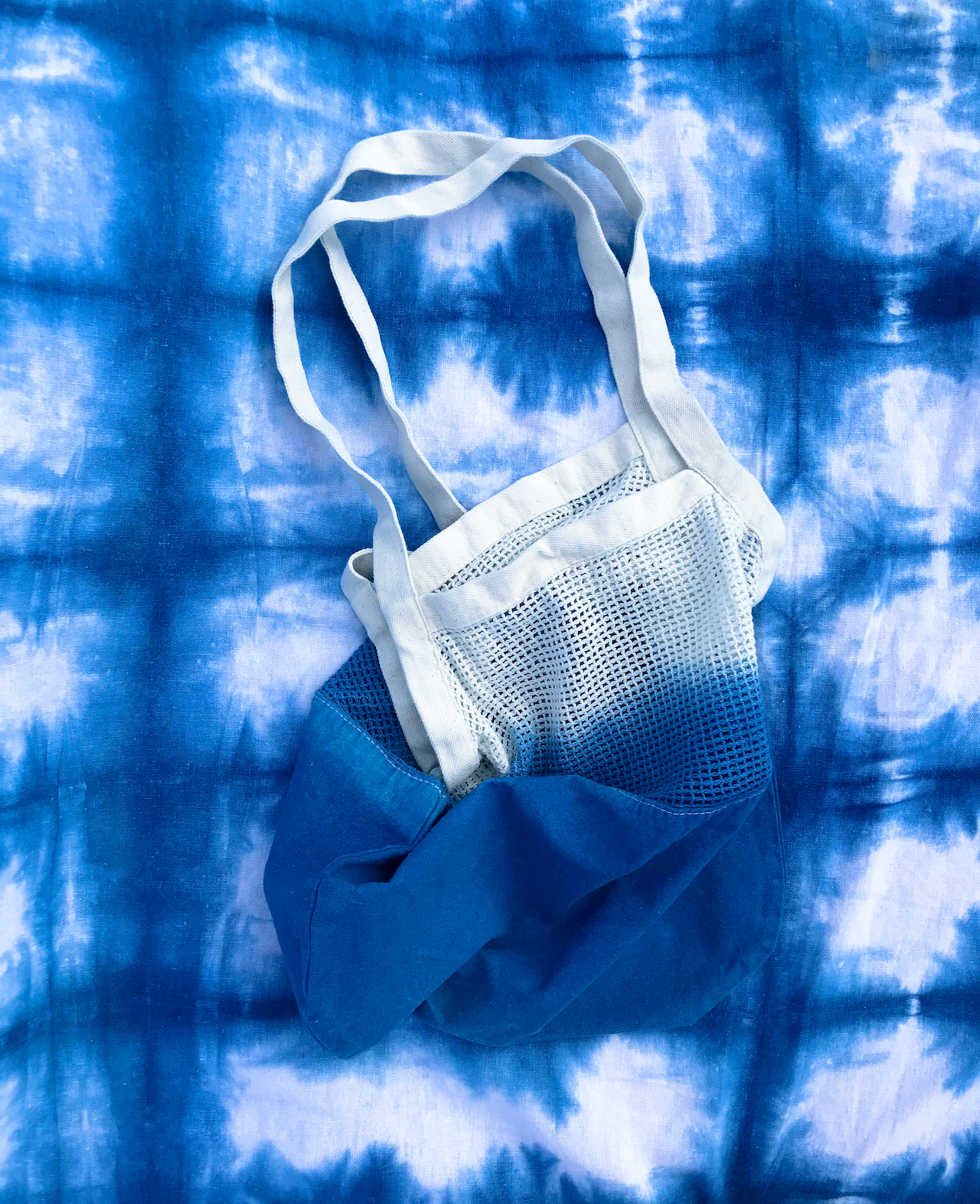
Anything else you'd like to share? We are committed to creating a business that is force for good, and this includes becoming a fully sustainable fashion brand. We are by no means perfect in this space, and we are educating ourselves and improving our business practices every day so that when you buy from us, you won’t have to wonder about a single thing. All of our packaging comes from Better Packaging Co., which uses compostable shipping envelopes and labels. Our mail packaging inserts come from Noissue, which uses recycled paper and soy based prints that can also be added to the compost for sustainable living.
Also let it be known that the fashion industry uses enough water annually to fill 37 million Olympic swimming pools. Dyeing fabric is the most polluting and energy-intensive process involved in making our clothes; it involves 20,000 different kinds of chemicals, many of them carcinogens. Natural dyes are made from renewable sources that can be harnessed without imposing harm to the environment. All of the pieces in our indigo collection use natural dyes that are safer for the environment than popular synthetic dyes. Currently we use pre-existing market sourced fabrics instead of dying our own custom fabrics and colors (which would add even more waste in our water) in order to minimize our environmental impact. By 2025 our goal is to be using 100 percent sustainable dyed fabrics across all our products.
Learn more at fourfourco.com and on Instagram @fourfourco.
Categories: Fashion Design Alumni


